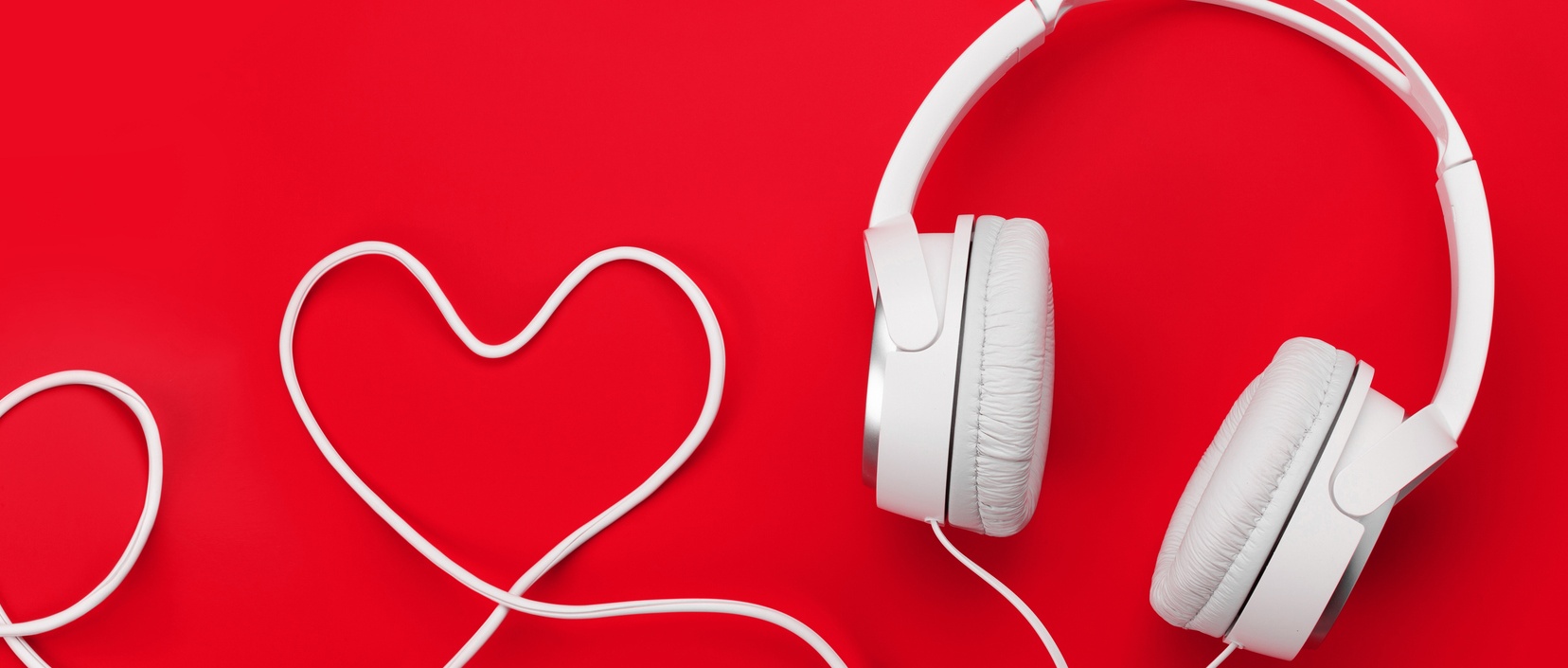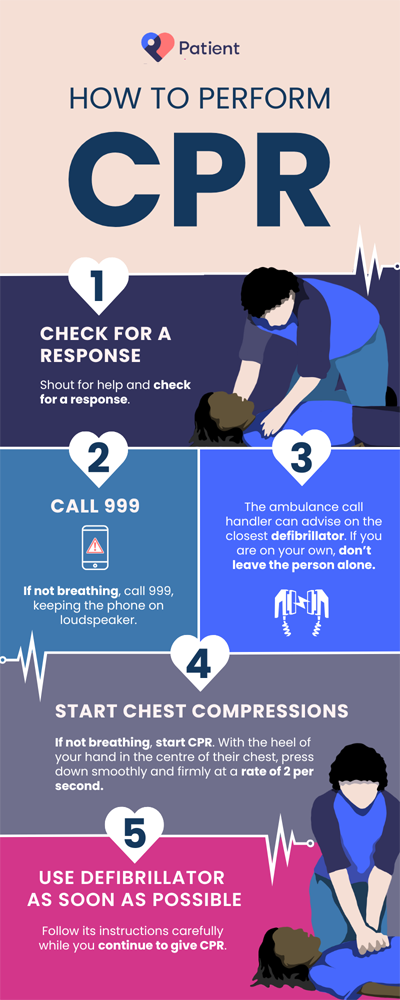
The importance of learning CPR
Peer reviewed by Dr Krishna Vakharia, MRCGPAuthored by Victoria RawOriginally published 14 Oct 2024
Meets Patient’s editorial guidelines
- DownloadDownload
- Share
- Language
- Discussion
- Audio Version
According to the British Heart Foundation (BHF) 30,000 people have a cardiac arrest each year. Fewer than one in ten of these people will survive. Cardiac arrest can happen to anyone, anywhere, at any time - and without warning.
Knowing how to perform CPR could double someone's chances of surviving it. We hear from real-life heroes who've saved lives through CPR. Their stories highlight the vital importance of learning this life-saving skill.
In this article:
Video picks for First aid
Continue reading below
What is CPR?
CPR (cardiopulmonary resuscitation) is an emergency procedure to get your heart beating again when it unexpectedly stops (cardiac arrest). When your heart stops beating it stops pumping blood around your body - starving your brain of oxygen. The longer your brain goes without oxygen, the greater the chance of brain damage and death. CPR can keep your blood pumping until professional medical help arrives.
How to perform CPR

© Graphic by Ben Hudson
Why is learning CPR important?
Back to contentsWithout CPR, your chance of dying dramatically increases after cardiac arrest. By learning CPR, you can become a hero and save someone else's life. Minutes spent learning CPR can mean a lifetime saved. The British Heart Foundation's RevivR campaign puts this power in your hands. Taking its free 15-minute online CPR course means you could be ready to act in an emergency.
Continue reading below
Andy's story
Back to contentsAndy's story
Andy Bleasby of Wakefield, West Yorkshire, performed life-saving CPR in a familiar yet seemingly unlikely place.
"I was actually in the pub, about to watch a local rugby game," says the father of two. "I was just chatting with my in-laws when my friend told me someone had collapsed around the corner. I thought, "That doesn't sound good", so I got up to see what was happening.
Due to his role as an operating department practitioner (ODP), Andy undergoes yearly CPR training. So when he saw a man lying unconscious and unresponsive on the floor of the pub, his instinctive response was to step in and perform immediate CPR.
"My friend and I took turns performing CPR until the ambulance team arrived. The person survived and is now living a normal life. I even went to his 65th birthday party."
Andy says knowing how to do CPR was vital for the person whose life he helped save.
"There are many organisations running free CPR training and basic life support courses," he says. "So if you have the opportunity to go on one - do it. You never know when it’s going to come in useful. Cardiac arrest can happen to anyone - it may be a stranger in a pub, or it could be a family member in your own house."
If you see someone in cardiac arrest, you should always attempt CPR - even if you're unsure of the correct technique. Performing any type of CPR could save their life - immediate CPR can double or triple the chance of survival from cardiac arrest.
If you feel uncomfortable doing 'rescue breaths', hands only CPR has been shown to be effective and could potentially save a life. Chest compressions can keep the blood pumping around the body while you wait for the ambulance to arrive.
"Anything you can do is a bonus," says Andy. "Even if you haven't had CPR training - or only watched it on TV - if you can attempt to do what you can do, that's better than nothing. It gives that person a greater chance of survival."
For more inspiring stories about the life-saving power of CPR, tune in to Emma's story.
How to do CPR
Patient picks for First aid

Treatment and medication
4 first aid tips for a safe and merry Christmas
It’s that time of year we’ve all been waiting for - a chance to unwind and enjoy our favourite Christmas traditions. But even with the cosy, carefree vibes, it’s worth remembering that Christmas can actually bring a few extra hazards into your home. So as the festivities ramp up, St John Ambulance is sharing some down-to-earth first aid tips to help keep the season happy and safe.
by Victoria Raw

Treatment and medication
Essential first aid items for your home
We all like to be prepared for emergency medical situations at home, especially those of us living with children, the elderly or anyone particularly accident-prone. From covering up a cut to treating a severe burn, a well-stocked first aid kit can prove pivotal to a patient's recovery.
by Danny Chadburn
Continue reading below
Article history
The information on this page is peer reviewed by qualified clinicians.
Next review due: 15 Oct 2027
14 Oct 2024 | Originally published
Authored by:
Victoria RawPeer reviewed by
Dr Krishna Vakharia, MRCGP

Ask, share, connect.
Browse discussions, ask questions, and share experiences across hundreds of health topics.

Feeling unwell?
Assess your symptoms online for free
Sign up to the Patient newsletter
Your weekly dose of clear, trustworthy health advice - written to help you feel informed, confident and in control.
By subscribing you accept our Privacy Policy. You can unsubscribe at any time. We never sell your data.